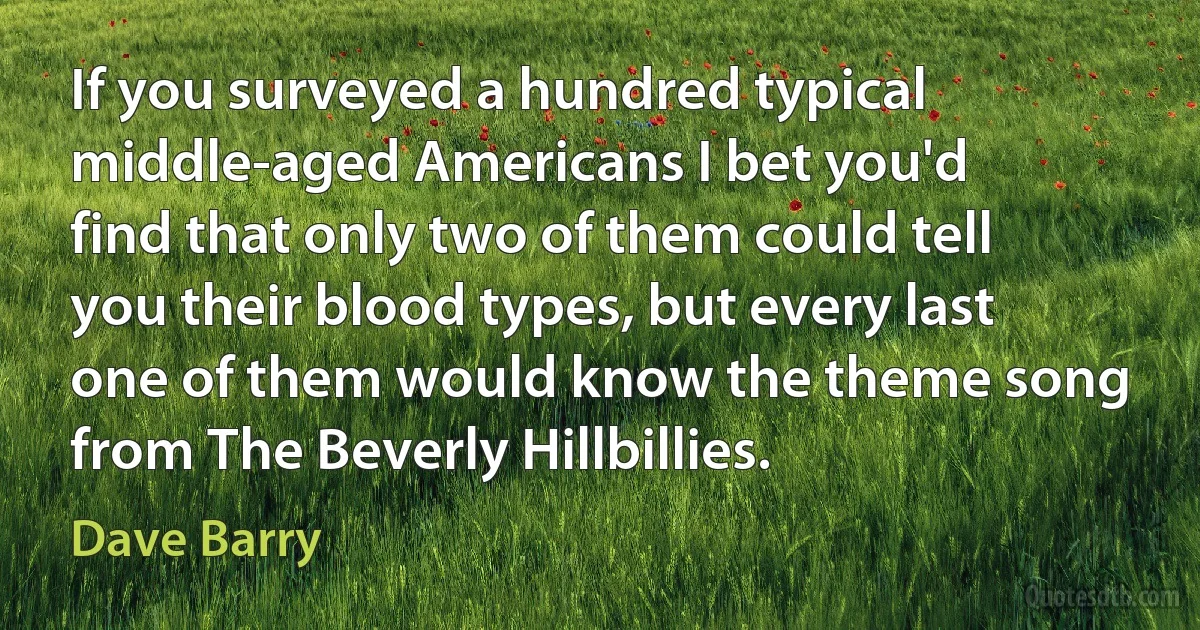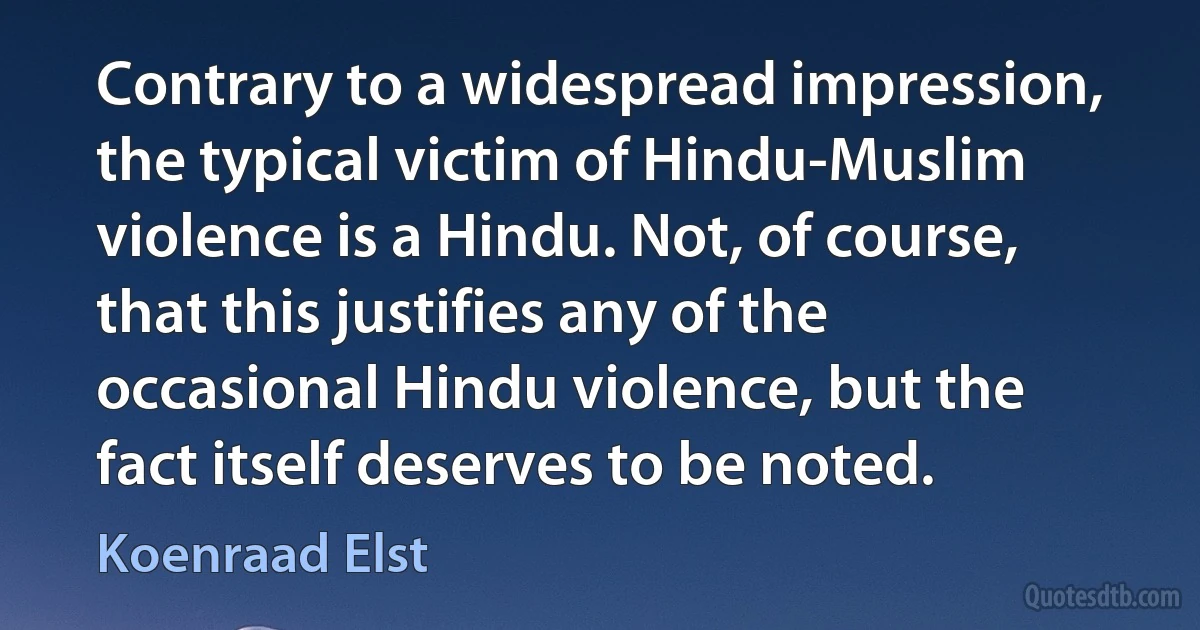Typical Quotes - page 16
Books should confuse. Literature abhors the typical. Literature flows to the particular, the mundane, the greasiness of paper, the taste of warm beer, the smell of onion or quince. Auden has a line: "Ports have names they call the sea." Just so will literature describe life familiarly, regionally, in terms life is accustomed to use - high or low matters not. Literature cannot by this impulse betray the grandeur of its subject - there is only one subject: What it feels like to be alive. Nothing is irrelevant. Nothing is typical.

Richard Rodriguez
Apple is becoming more and more like a typical tech firm - that is, long on technology and short on magic. ... Apple is drifting closer and closer to where it was back in the 1990s. It offers advancements that largely follow those made by others years earlier, product proliferation, a preference for more over simple elegance, and waning excitement.

Rob Enderle
I think it's fair to say, this is not your typical election. It's not just a choice between parties or policies; the usual debates between left and right. This is a more fundamental choice - about who we are as a people, and whether we stay true to this great American experiment in self-government.

Barack Obama
The capitalist engine is first and last an engine of mass production which unavoidably also means production for the masses. . . . It is the cheap cloth, the cheap cotton and rayon fabric, boots, motorcars and so on that are the typical achievements of capitalist production, and not as a rule improvements that would mean much to the rich man. Queen Elizabeth owned silk stockings. The capitalist achievement does not typically consist in providing more silk stockings for queens but in bringing them within reach of factory girls.

Joseph Schumpeter
I myself have not met a self‐confessed liberal since the late fifties (and even then it was a tacky thing to admit, like coming from the middle class or the Middle West, those two gloomy seedbeds of talent), yet hardly a day passes that I don't read another attack on the "typical liberal” - as it might be announcing a pest of dinosaurs or a plague of unicorns.

Wilfrid Sheed
The typical organization is hierarchical, with workers answering to a manager, and that manager answering to a still-higher manager, and so on. The value of such hierarchies is obvious-it vastly simplifies communication among the employees. New employees need only one connection, to their boss, to get started. That's much simpler than trying to have everyone talk to everyone.

Clay Shirky
In this regard too I consider myself a cripple, a stunted man whose fate it is to admit honestly that he must put up with this state of affairs (so as not to fall for some romantic swindle)... For you a theologian of liberal persuasion (whether Catholic or Protestant) is necessarily most abhorrent as the typical representative of a halfway position.

Max Weber
Such is the grace and power of baptism; not an overwhelming of the world as of old, but a purification of the sins of each individual, and a complete cleansing from all the bruises and stains of sin. And since we are double-made, I mean of body and soul, and the one part is visible, the other invisible, so the cleansing also is twofold, by water and the Spirit; the one received visibly in the body, the other concurring with it invisibly and apart from the body; the one typical, the other real and cleansing the depths.

Gregory of Nazianzus
Elitism is a typical aspect of any reactionary ideology, insofar as it is fundamentally aristocratic, and aristocratic and militaristic elitism cruelly implies contempt for the weak. Ur-Fascism can only advocate a popular elitism. Every citizen belongs to the best people of the world, the members of the party are the best among the citizens, every citizen can (or ought to) become a member of the party. But there cannot be patricians without plebeians. In fact, the Leader, knowing that his power was not delegated to him democratically but was conquered by force, also knows that his force is based upon the weakness of the masses; they are so weak as to need and deserve a ruler. Since the group is hierarchically organized (according to a military model), every subordinate leader despises his own underlings, and each of them despises his inferiors. This reinforces the sense of mass elitism.

Umberto Eco
Every limit is a beginning as well as an ending. Who can quit young lives after being long in company with them, and not desire to know what befell them in their after-years? For the fragment of a life, however typical, is not the sample of an even web: promises may not be kept, and an ardent outset may be followed by declension; latent powers may find their long-waited opportunity; a past error may urge a grand retrieval.

George Eliot
What we have now come to regard as typical of Middle Eastern regimes is not typical of the past. The regime of Saddam Hussein, the regime of Hafiz al Assad, this kind of government, this kind of society, has no roots either in the Arab or in the Islamic past. It is due and let me be quite specific and explicit it is due to an importation from Europe, which comes in two phases.

Saddam Hussein
She is very typical of her generation - these new teenagers who are not quite the sex, drugs and rock'n'roll generation of Sixties America but who are very in your face, very confident and very brash. This kind of attitude is not unique to her: you see teenagers like her in the streets. She represents a new India that doesn't care what anyone thinks.

Sania Mirza
The RKM professes a syncretism, combining elements from different religions. Ramakrishnaism is the syncretism par excellence, affirming "all” religions to be true. As the Church Fathers wrote, syncretism is typical of Paganism. The Roman-Hellenistic milieu in which the first Christians had to function, was full of syncreticism, with Roman matrons worshipping Isis with the babe Horus (an inspiration for the image of Mary holding the babe Jesus), legion soldiers worshipping Persian-originated Mithras, and imperial politicians worshipping the Syrian-originated Sol Invictus... Against this syncretism, they preached religious purity: extra ecclesiam nulla salus, outside the Church no salvation. They had no problem admitting that Paganism was naturally pluralistic, but what is the use of choosing between or combining different kinds of falsehood?

Koenraad Elst
Om or Aum (Sk.). A mystic syllable, the most solemn of all words in India. It is "an invocation, a benediction, an affirmation and a promise and it is so sacred, as to be indeed the word at low breath of occult, primitive masonry. No one must be near when the syllable is pronounced for a purpose. This word is usually placed at the beginning of sacred Scriptures, and is prefixed to prayers. It is a compound of three letters a,u,m, which, in the popular belief, are typical of the three Vedas, also of three gods-A (Agni) V (Varuna) and M (Maruts) or Fire, Water and Air. In esoteric philosophy these are the three sacred fires, or the "triple fire”in the Universe and Man, besides many other things...

Helena Petrovna Blavatsky
The old Whigs and new Tories of the school of Cobden and Bright, the "Philosophic Radicals," the economists of whom Bastiat is the type, Lord Wemyss and Lord Bramwell, Mr. Herbert Spencer and Mr. Auberon Herbert, Mr. Gladstone, Mr. Arthur Balfour, Mr. John Morley, Mr. Leonard Courtney: any of these is, in England, a more typical Anarchist than Bakounin. They distrust State action, and are jealous advocates of the prerogative of the individual, proposing to restrict the one and to extend the other as far as is humanly possible, in opposition to the Social-Democrat, who proposes to democratize the State and throw upon it the whole work of organizing the national industry, thereby making it the most vital organ in the social body.

George Bernard Shaw



